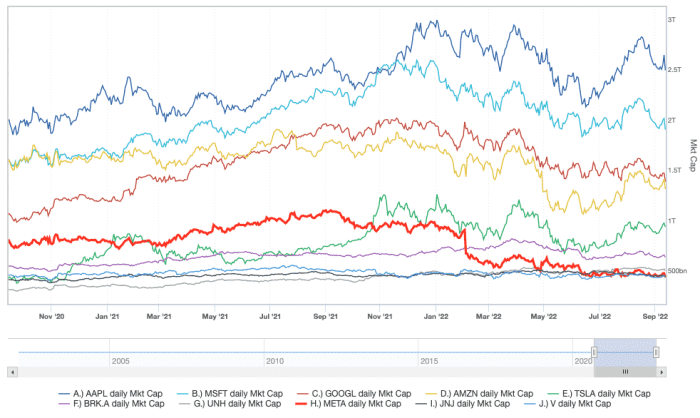By Luc Olinga
The CEO of Meta Platforms announces a new day in tech: conventional normality.
The party’s over.
In tech, this amounts to saying that the cool and Zen culture marked by an office transformed into a cosy lounge is over. Used to be we came, we entered and we were at home. The fridge was full; everyone helped themselves. The buffet was permanent.
The employee was in the centre. Work-life balance was the principle. The well-being of the employee came first. Companies were required to do everything to put their employees at ease to get the best out of them.
No more.
It’s all a distant memory now, says Mark Zuckerberg, CEO of Meta Platforms (META) – Get Free Report. Welcome to the real world, he proclaimed on March 14.
The social media emperor just announced the elimination of 10,000 additional jobs, after 11,000 jobs were cut last November. In all, the parent of Facebook, Instagram and WhatsApp has cut 21,000 jobs in four months.
‘Year of Efficiency’
It’s not just the cuts themselves that’s striking here. It’s the tone with which Zuckerberg announced the new wave of austerity measures. He adopted the vernacular of the boss of an old-economy company. He was a cost-killer. He was cold. It’s isn’t personal; it’s just business. He was a normal boss.
“In our Year of Efficiency, we are focused on cancelling projects that are duplicative or lower priority and making every organization as lean as possible,” Zuckerberg wrote in a blog post.
He continued: “As part of the Year of Efficiency, we’re focusing on returning to a more optimal ratio of engineers to other roles. It’s important for all groups to get leaner and more efficient to enable our technology groups to get as lean and efficient as possible.”
He used the word “efficiency” fully a dozen times, including three times in the first two paragraphs. These two paragraphs are a catch-all of classic corporate lingo that says everything and nothing: “improve our financial performance,” “difficult environment,” “execute,” “optimize,” “workstreams,” “processes,” “changes,” “uncertainty,” and “focus.”
He sounds like the CEO of a traditional company. His post is a manual, a guide that other tech CEOs will use as well.
The tone is cold. And it changed. In November, when Zuckerberg announced the elimination of 11,000 jobs, he played the sensitive chord. He apologized.
“I want to take accountability for these decisions and for how we got here,” the CEO said at the time. “I know this is tough for everyone, and I’m especially sorry to those impacted.”
This time, there is none of that. He is not sentimental, as if to put a wall between him and those for whom the music just stopped and who were asked to go home while the evening was in full swing. He just killed the fun.
A New Normal
Tech and Silicon Valley now enter the normal corporate world. In this world, what matters is to please the markets. And markets like cost cuts. The employee is secondary. If you make big profits with the least possible cost, the markets applaud.
Interestingly, Zuckerberg’s announcements come at the same time as the collapse of Silicon Valley Bank, a major player in the startup ecosystem and in Silicon Valley.
The two events cannot be separated. Their symbolism is strong. It is the end of an era and the beginning of a new one, or rather the meeting of the old economy and the new one.
In case anyone still has any doubts, Zuckerberg also appears to be ending remote work at Meta. Tech companies previously backed off from from forcing employees back to the office.
“Our early analysis of performance data suggests that engineers who either joined Meta in-person and then transferred to remote or remained in-person performed better on average than people who joined remotely,” he said.
“This analysis also shows that engineers earlier in their career perform better on average when they work in-person with teammates at least three days a week.”
“I encourage all of you to find more opportunities to work with your colleagues in person.”
The party is over. It’s time to grow up, Zuckerberg seems to be saying.
One last tip to reflect on, while you’re on your way home: “I encourage each of you to focus on what you can control. That is, do great work and support your teammates.”
Tech workers: Welcome to a normal boss and a normal company.



